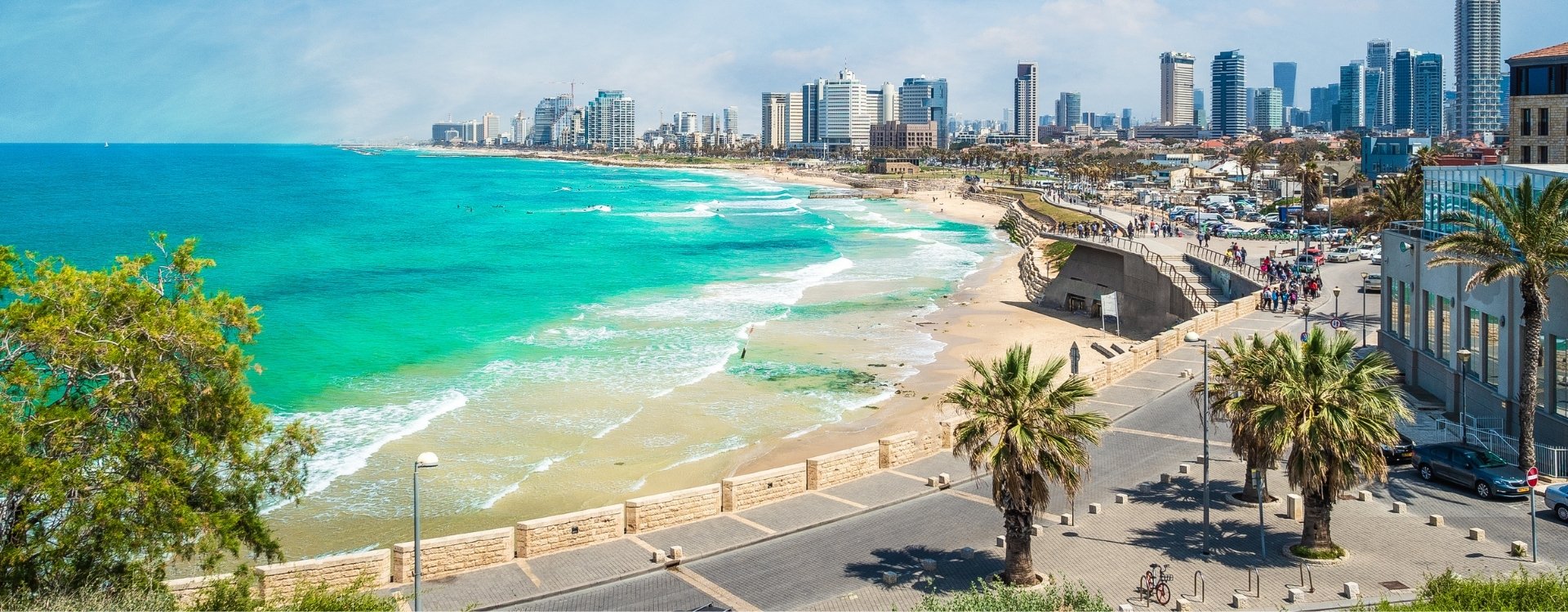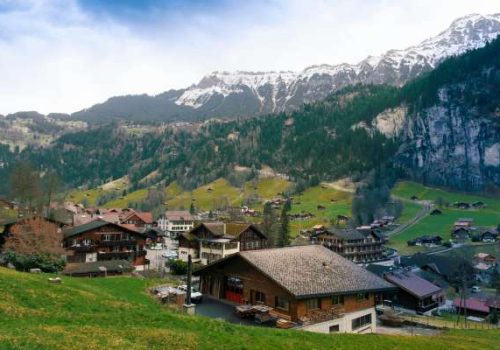Living and Working in Israel
Information & guidance about seasonal jobs in Israel
Israel, known as the “Start-up Nation,” offers a unique blend of ancient history, vibrant culture, and a thriving high-tech economy. Nestled in the Middle East, Israel draws expats with opportunities in technology, healthcare, education, and more. However, the country’s complex political landscape and ongoing regional tensions are factors expats should consider before moving. This guide provides a thorough overview of living and working in Israel, helping you understand the job market, lifestyle, and cultural dynamics.
Seasonal jobs in Israel
We don’t have any jobs matching this search. Below you’ll find a selection of our most popular vacancies!
- Hotel jobs, Tourism
- Cyprus, Greece, Spain
- Adventure jobs, Hotel jobs, Tourism
- Bulgaria, Croatia, Egypt, Greece, Italy, Spain, Turkey
Working in Israel
Working Conditions in Israel
Working in Israel involves navigating both a high-energy professional environment and a culture that values personal freedom and family life. Israel’s workweek is generally Sunday to Thursday, aligning with the country’s Jewish culture, with many offices open from 8 am to 5 pm. Fridays and Saturdays are designated rest days, with much of the country’s infrastructure closing early on Friday afternoon in observance of Shabbat, the Jewish Sabbath.
In recent years, Israel has implemented labor laws that protect employee rights, such as limiting work hours to 42 per week. However, overtime work is common in certain sectors, particularly in tech and finance. Israel’s labor laws guarantee a minimum of 12 days of annual paid leave, though many employees receive additional time off depending on their tenure and company policy.
Public holidays are determined by the Jewish calendar, and several holidays result in nationwide closures, such as Yom Kippur and Passover. This calendar means that holiday periods can change each year, requiring expats to familiarize themselves with the Jewish holiday schedule to plan their work commitments accordingly.
Working Opportunities for Expats in Israel
Israel’s economy is diverse, with particular strength in technology, healthcare, agriculture, and tourism. Known as a world leader in innovation, Israel attracts highly skilled professionals, especially in the tech sector. Major cities like Tel Aviv are home to numerous start-ups and tech companies, many of which actively recruit foreign professionals with skills in software development, data science, cybersecurity, and engineering.
Healthcare and education also offer viable opportunities for expats, with English speakers in demand, especially in international schools and language institutes. Additionally, Israel’s tourism sector is growing, and there are positions in hospitality, guiding, and other service-oriented roles, particularly in cities like Jerusalem and Eilat.
While it can be challenging for expats to find positions outside these fields, networking is crucial in Israel’s job market. Attending meetups, leveraging LinkedIn, and exploring opportunities through local connections often prove successful. Knowledge of Hebrew is beneficial for job seekers, though English-speaking roles are available, especially in international companies and tech start-ups.
Salaries in Israel
Salaries in Israel vary widely by industry, but the average monthly salary is around ILS 11,000 (approximately €2,800). In high-demand sectors like tech, expats can expect monthly salaries between ILS 15,000 and ILS 30,000, depending on experience and specialization. Roles in education and hospitality may offer salaries closer to the national average, though they sometimes include perks such as housing stipends or transportation allowances.
It’s worth noting that Israel has a high cost of living, particularly in major cities like Tel Aviv, where expenses can outpace average earnings. Housing, food, and transportation are considerably more expensive than in many Western countries, so expats should carefully evaluate their potential income against living costs. Additionally, many companies provide employee benefits like meal subsidies, wellness programs, and holiday gifts, which can help offset costs.
Income Tax in Israel
Israel’s income tax system is progressive, with rates ranging from 10% to 50% based on income level. Social security contributions are also mandatory and are deducted directly from salaries to cover healthcare, pension, and other social services. Expats must familiarize themselves with Israel’s tax system, as dual taxation can be a consideration for foreign nationals. Many countries have tax treaties with Israel that help mitigate the impact of double taxation, so it’s wise to consult a tax advisor or accountant.
Israel’s tax year runs from January to December, and tax returns are due by the end of April. Expats working in Israel for more than 183 days a year are considered residents and are therefore required to pay taxes on global income. While the tax burden can be high, it contributes to comprehensive public services, including universal healthcare and robust social welfare programs.
Working Culture in Israel
The Israeli working culture emphasizes direct communication, innovation, and resilience. Israelis are known for their straightforward approach, often referred to as “chutzpah,” which values openness and quick thinking. Hierarchies in the workplace are relatively flat, with leaders often engaging directly with their teams and expecting proactive, self-starting employees.
Workplace relationships are close-knit and friendly, often extending to social events outside of work. Family is a cornerstone of Israeli life, and employers generally understand the importance of work-life balance, with many supporting flexible schedules for parents. Innovation is highly prized in Israel, particularly in the tech sector, where employees are encouraged to contribute ideas and challenge conventional approaches.
Networking in Israel
Networking is essential for success in Israel’s competitive job market. Israelis are highly social and place great emphasis on personal connections. Expats are encouraged to join professional associations, attend industry events, and connect through LinkedIn. Organizations like the Israel-America Chamber of Commerce and Nefesh B’Nefesh offer networking events and resources for new arrivals.
Israel’s start-up scene is particularly network-driven, with numerous incubators, co-working spaces, and tech meetups that welcome expats and locals alike. These spaces are excellent for forming connections, especially in Tel Aviv, which hosts a range of international networking events and start-up competitions.

Living in Israel
Benefits of Living and Working in Israel
Living in Israel offers an exceptional blend of ancient history and modern amenities. Israel’s healthcare system is one of the best in the world, available to all residents through a universal healthcare model. This ensures quality care at relatively low personal cost, supported by health insurance through one of the country’s four main health funds.
Israel is also known for its high-quality education system, making it attractive to families. Additionally, expats can enjoy a wide array of cultural experiences, from festivals and markets to rich culinary traditions. Israel’s diverse population means that residents from different backgrounds coexist, creating a lively cultural tapestry.
However, expats should be aware of the complex political landscape. While Israel is generally safe, political tensions and security concerns are part of daily life, particularly in areas near borders or disputed regions. Cities like Tel Aviv and Haifa are typically more stable, but it’s essential to stay informed about current events and follow local safety advice.
Accommodation in Israel
Finding accommodation in Israel can be challenging due to high demand, especially in Tel Aviv and Jerusalem, where rent prices are among the highest in the country. A one-bedroom apartment in Tel Aviv averages ILS 6,000 to ILS 8,500 per month (€1,500-€2,100), while prices in Jerusalem are slightly lower. Many expats opt to share apartments to reduce costs.
Outside major cities, prices drop significantly, and areas like Haifa offer more affordable housing options with good access to public transportation and urban amenities. To find apartments, expats can use platforms like Yad2 and Homeless.co.il. Landlords typically require a 12-month lease and may ask for several months’ rent upfront as security, so it’s essential to be prepared for initial costs.
Cost of Living in Israel
Israel’s cost of living is high, particularly in cities like Tel Aviv, which ranks among the most expensive cities worldwide. Groceries, transportation, and dining out are generally more costly than in Europe or the United States. A typical monthly grocery bill for a single person can reach ILS 1,500 to ILS 2,500, depending on dietary habits and preferences.
Public transport is well-organized but also costly, with a monthly bus pass averaging ILS 250. Dining out is popular, but a meal at a mid-range restaurant can cost ILS 80 to ILS 150. Expats should factor these expenses into their budgets and plan accordingly.
Where to Live in Israel
Tel Aviv is the most popular choice for expats, known for its vibrant nightlife, beaches, and start-up culture. Expats in Tel Aviv will find a wide variety of restaurants, shopping, and cultural events. The city’s international community also makes it easier for newcomers to settle in.
For a quieter atmosphere, Haifa offers a more relaxed lifestyle with a lower cost of living and access to Israel’s northern beaches and cultural sites. Jerusalem is ideal for those drawn to Israel’s historical and religious landmarks, but the city has a more conservative culture compared to Tel Aviv.
Smaller cities like Beer Sheva or Netanya offer affordable living options with easy access to larger cities and plenty of outdoor activities, appealing to families and outdoor enthusiasts.
Public Transport in Israel
Public transport in Israel is efficient and reliable, primarily through buses, trains, and a new light rail system in Jerusalem. Tel Aviv is currently developing its own light rail, expected to improve city transport dramatically. Intercity buses and trains connect Israel’s main cities, making it easy to travel without a car.
For daily commuting, a monthly public transit pass costs around ILS 250 to ILS 300, providing unlimited access to buses and trains within specific zones. Ride-sharing services like Gett are also widely used, especially in cities, offering a convenient option for getting around.
Eating in Israel: Restaurants and Food Cost
Israel’s culinary scene is diverse, influenced by Middle Eastern, Mediterranean, and European cuisines. Dining out is a favorite pastime, with local favorites like falafel, hummus, and shakshuka available at both street stalls and upscale restaurants. A casual meal costs around ILS 40 to ILS 70, while a three-course meal at a mid-range restaurant costs ILS 150 to ILS 250.
Buying groceries and cooking at home is generally more affordable, though prices can still be high. Local markets, such as the Carmel Market in Tel Aviv, offer fresh produce and local products, often at lower prices than supermarkets.
Israel’s Nightlife
Israel has a dynamic nightlife scene, especially in Tel Aviv, often referred to as the “City that Never Sleeps.” From bars and nightclubs to beach parties, the city offers countless options for entertainment. Jerusalem has a more traditional nightlife but is also known for its lively student scene and cultural events.
Weekends start on Thursday evenings, with Friday and Saturday nights being the most popular for nightlife. Many places stay open late, and events cater to various music tastes, from electronic to jazz. Safety is generally high, but it’s advised to stay informed about local advisories, especially in areas near political hotspots.
Weather in Israel
Israel’s climate varies greatly, from the Mediterranean weather along the coast to the desert climate in the south. Summers are hot and dry, particularly in Tel Aviv, where temperatures average 30°C. Winters are mild in coastal cities, with temperatures around 10-15°C, while the northern regions and Jerusalem experience cooler winters with occasional snow.
The spring and autumn months are especially pleasant, with moderate temperatures ideal for outdoor activities. For expats, it’s essential to prepare for the intense summer heat and the milder, often rainy winters.
Israel’s Nature
Despite its small size, Israel offers incredible natural diversity. Expats can explore beaches, deserts, mountains, and nature reserves, all within a few hours’ drive. Popular destinations include the Dead Sea, the Negev Desert, and the Golan Heights, each offering unique landscapes and activities like hiking, diving, and exploring archaeological sites.
Israel also has numerous national parks and nature reserves, providing plenty of opportunities for outdoor enthusiasts. Eilat is a favorite for its beaches and coral reefs, while the Hula Valley attracts birdwatchers from around the world.
What Not to Miss in Israel
Israel’s rich history makes it a destination full of must-visit sites. Jerusalem is home to some of the world’s most significant religious landmarks, including the Western Wall, the Dome of the Rock, and the Church of the Holy Sepulchre. In Tel Aviv, the Jaffa Old City is a blend of ancient architecture and modern art galleries.
The Dead Sea is a natural wonder where visitors can float in salt-rich waters and experience therapeutic mud baths. Israel also has a growing wine industry, with vineyards in the Galilee and Judean Hills offering tasting tours and scenic views.








